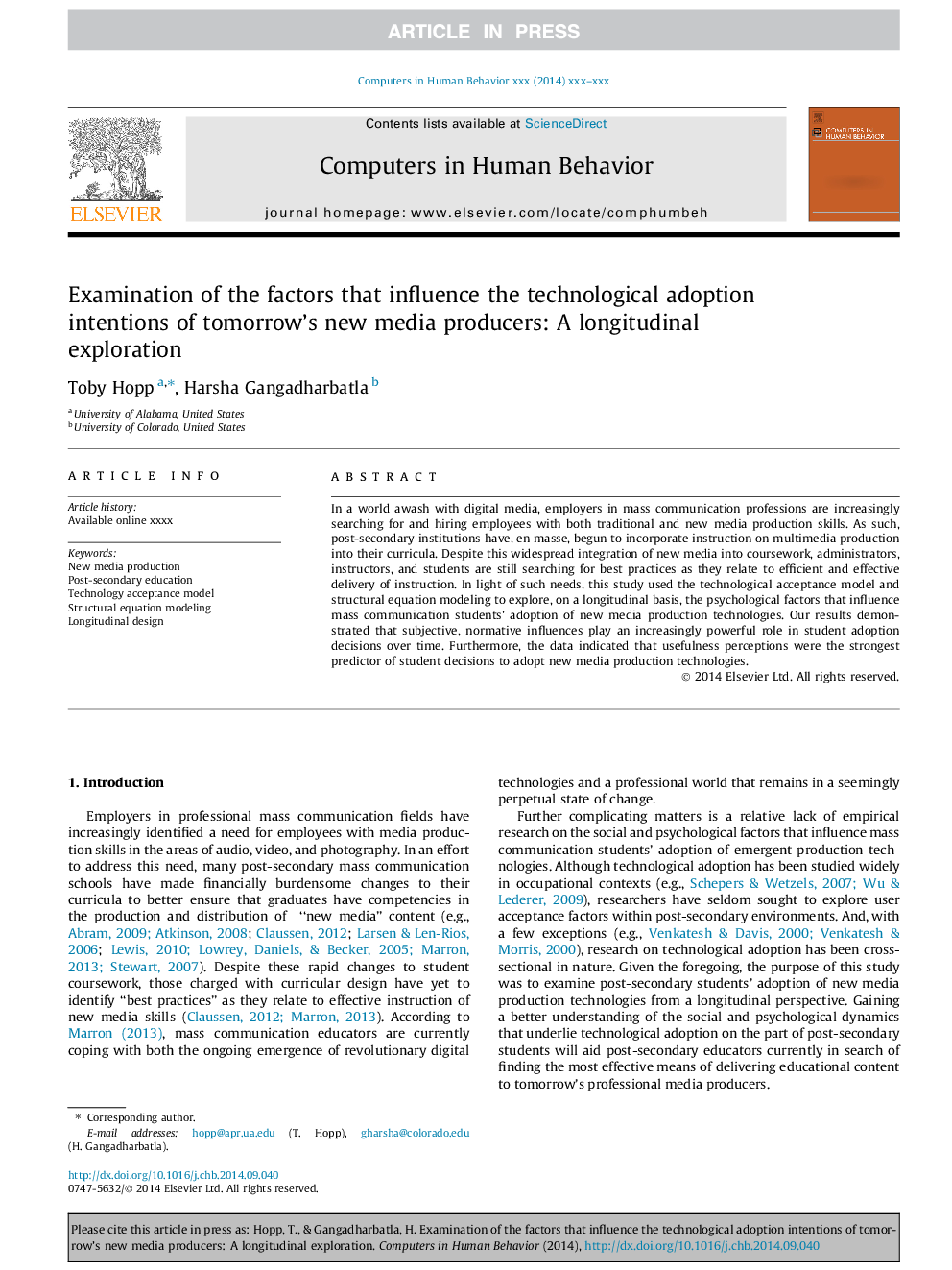| Article ID | Journal | Published Year | Pages | File Type |
|---|---|---|---|---|
| 10312742 | Computers in Human Behavior | 2016 | 8 Pages |
Abstract
In a world awash with digital media, employers in mass communication professions are increasingly searching for and hiring employees with both traditional and new media production skills. As such, post-secondary institutions have, en masse, begun to incorporate instruction on multimedia production into their curricula. Despite this widespread integration of new media into coursework, administrators, instructors, and students are still searching for best practices as they relate to efficient and effective delivery of instruction. In light of such needs, this study used the technological acceptance model and structural equation modeling to explore, on a longitudinal basis, the psychological factors that influence mass communication students' adoption of new media production technologies. Our results demonstrated that subjective, normative influences play an increasingly powerful role in student adoption decisions over time. Furthermore, the data indicated that usefulness perceptions were the strongest predictor of student decisions to adopt new media production technologies.
Keywords
Related Topics
Physical Sciences and Engineering
Computer Science
Computer Science Applications
Authors
Toby Hopp, Harsha Gangadharbatla,
